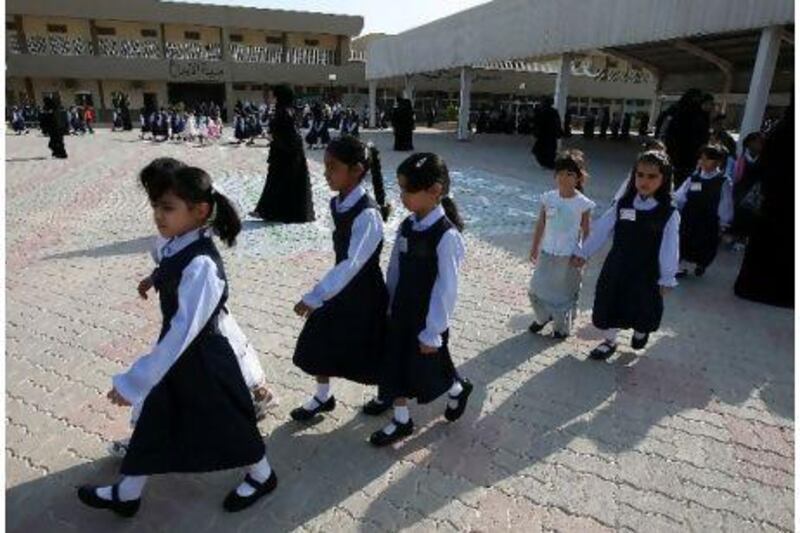DUBAI // The emirate's Executive Council has announced a complete overhaul of the education system.
A high-level committee has been appointed to reform the education strategy "in a short period of time" and in two phases, the council said yesterday.
The first phase will evaluate the state of education in Dubai and provide a baseline analysis. The second will be the development of a new strategy.
Emirati pupils will take priority in the strategy, as will the ability of schools to produce citizens who are ready to fill core positions in the emirate's industries, the council said.
Access to quality education was also listed as a main goal, along with "identifying legislative and regulatory gaps".
"The Ministry of Education will spare no effort in supporting the Executive Council, Dubai Education Zone and Knowledge and Human Development Authority [KHDA] to reach the desired goals," said Humaid Al Qattami, the Minister of Education.
Mr Al Qattami said the plan would also support national education objectives.
"We are optimistic that when completed, the revamped K-12 education strategy of Dubai will meet expectations not only in regards to enhanced quality and governance, but also efficient fund and HR management," he said.
Schools across the UAE are managed through the cooperation of several education councils, Mr Al Qattami said.
In Dubai, these councils include the Ministry of Education at a federal level, the Dubai Education Zone for state schools and the KHDA for private schools.
Past changes to the education strategy in the emirate have centred on these councils.
The KHDA was created in 2006 and given control of state schools during the introduction of a decentralised-education strategy.
In October 2010, another strategy saw state-school administration return to the Dubai Education Zone.
There has also been a migration of students from the state to the private system.
There was a 75 per cent increase of Emirati pupils in private schools between 2003 and 2010, according to a study published last year by the KHDA and CfBT, the British education trust.
In the same time, state schools recorded a 15 per cent decline in pupil numbers. Overall, about 57 per cent of Emirati children attend private schools in Dubai.
Nadia Al Falahi, an Emirati mother of four, said she found private schools were a gamble.
"They are expensive and you never know if they will be beneficial or not," Mrs Al Falahi said.
Abdullah Al Shaibani, the secretary general of the Dubai Executive Council, said: "We are in full agreement with the Minister of Education that there is room for better alignment and a need for a clearer direction according to specific requirements of Dubai."
The council said surveys would be conducted along with focus groups and interviews involving parents, students, teachers and principals, as well as investors, urban-planning experts, finance and education authorities.
"The revamp of Dubai education strategy will build on the success of what has been done by local authorities thus far, and on the national strategy developed by the Government," Mr Al Shaibani said.
Dr Abdullah Karam, the director general of the KHDA, expressed optimism about the new plan.
"We are glad to have all parties on board for the revamp of Dubai Education strategy," Dr Karam said.
"This project will tackle the missing or outdated components of the existing strategy and factor in its solid strengths."
Dr Ahmad Eid Al Mansouri, the director general of Dubai Education Zone, agreed there was a need for a more specific strategy.
Dr Al Mansouri said collaboration between the authorities would lead to the successful introduction of the revamped Dubai Education Strategy.
[ amustafa@thenational.ae ]






